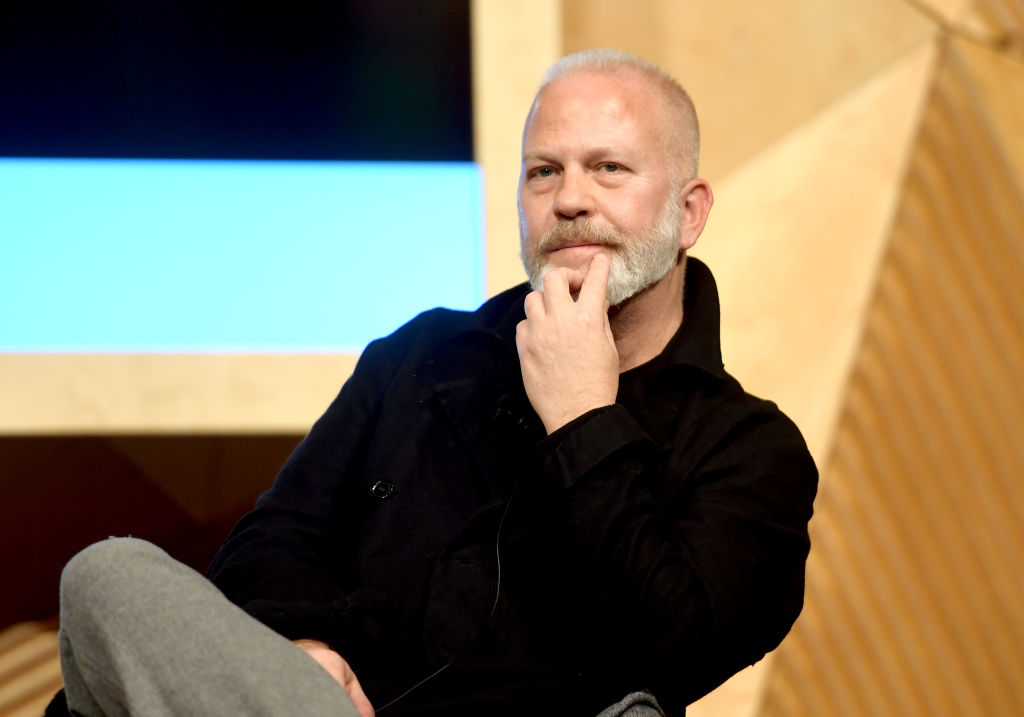
- Interviews
HFPA in Conversation: Ryan Murphy, Golden Globe Veteran
As a child, Ryan Murphy already dreamed of a career in Hollywood. After a short stint in TV visionary, who has been breaking boundaries since the late 90s. In the last 20 years, he has created, produced and directed shows like Nip/Tuck, The New Normal, Glee, Scream Queens, Feud, American Horror Story – that launched a season-long anthology format eight years ago -, 9-1-1, Pose and American Crime Story.
“My beloved grandmother was a real movie and television fanatic, so I grew up with it. And my mother had been in beauty pageants and had come out to Hollywood at a very young age to be an extra. She used to tell me these stories. As a child I was, oh, I love that place Hollywood, whatever that is. Long story short is: I got accepted to film school but my parents made too much for me to get a scholarship and not enough to pay for it. I kind of always knew it was my destiny but I was too chicken to push it. Then I became a journalist and very quickly I started specializing in entertainment stuff,” he told HFPA journalist Jenny Cooney at his office in October of 2018.
An Indiana native, Murphy moved to Los Angeles in his 20s and wrote articles for several newspapers and magazines. At the same time, he started to write scripts. Nip/Tuck, a twisted plastic surgery/medical satire, was his first hit and won a Golden Globe in 2005.
“I will never forget it because it was a very important moment for me and my career because I always wanted to be in the game. I got nominated the first year and we didn’t win but it really helped my career, and then the second year when it won, you get to go up on stage and millions of people see you and the industry does look at you differently. Suddenly I had a lot more clout and I had a lot more abilities to push things through. My career before and after my first Golden Globes win was completely a different animal; it put me on the map.”
In 2010 he accepted the Golden Globe again – that time the winner was the teen musical Glee, which also won in 2011.
“People thought it was an instant success, but it was not. The first episode aired after the May finale of American Idol and it did ok. Then what happened was that summer the single of ‘Don’t Stop Believin’’ got a lot of attention and started to actually get Top 40 airplay. And when we went on in September we did ok. But then word of mouth, every episode got bigger and then in January we won the Golden Globe for Glee and that was a huge thing. It’s a very powerful thing when you win a Golden Globe because the cast comes up with you on the stage. And I think that people saw this incredible group of young, beautiful, talented kids who were optimistic and had something to say. We won a Golden Globe and at that point, we were off the air for a hiatus. But when we came back, because of that Golden Globe and all that attention, the show just became this stratospheric number one hit.”
Later he had success with American Horror Story, Feud and The People v. O.J. Simpson: American Crime Story. This year he is nominated for the TV shows Pose and The Assassination of Gianni Versace: American Crime Story.
“The Assassination of Gianni Versace was so difficult to get on the air. It is a show about gay persecution and homophobia and don’t ask, don’t tell and it was very personal to me.”
He had the same situation with Pose, a drama about New York’s ballroom culture in the 1980s. The show features the largest cast of transgender actors in series regular roles ever, as well as the largest recurring cast of LGBTQ actors for a scripted series.
“I had been trying to make that story for 10 years. I started the journey with the failed Pretty/Handsome show. And it was only after the success of O.J. that I got to do Pose. I want to spotlight this group of people. I believe in their freedom, in their rights, in their beauty, and in their artistry.”
In February, Murphy signed the largest deal in television history: a $300 million, five year contract with Netflix.
“I don’t know how many years I have left in this business, but what I’m interested in doing is leaving it in a different place than it was when I began. When I began it was all pretty much white, straight men. I think we’re seeing a very big radical change in which more and more people and voices who’ve gone unseen are able to get on the air. Then they become hits because there is such a huge appetite for difference and breaking down barriers.”
Listen to the podcast and hear what was Ryan’s first assignment as an intern at the Knoxville News Sentinel; when he learned to be a disciplined writer; to whom he sold his first script Why Can’t I Be Audrey HepburnPopularJessica Lange was doing on her farm in Minnesota when Ryan gave her a call; wha he says to people whose career he has been admiring; why Lady Gaga called him; why writing is important to him, but not his favorite part of creating TV shows; how Sarah Paulson became his creative soul mate; how he reacted when Netflix made him an offer; and what is his daily routine.
Listen to the conversation here or, for immediate access to all of our podcasts, subscribe to HFPA in Conversation on iTunes.

